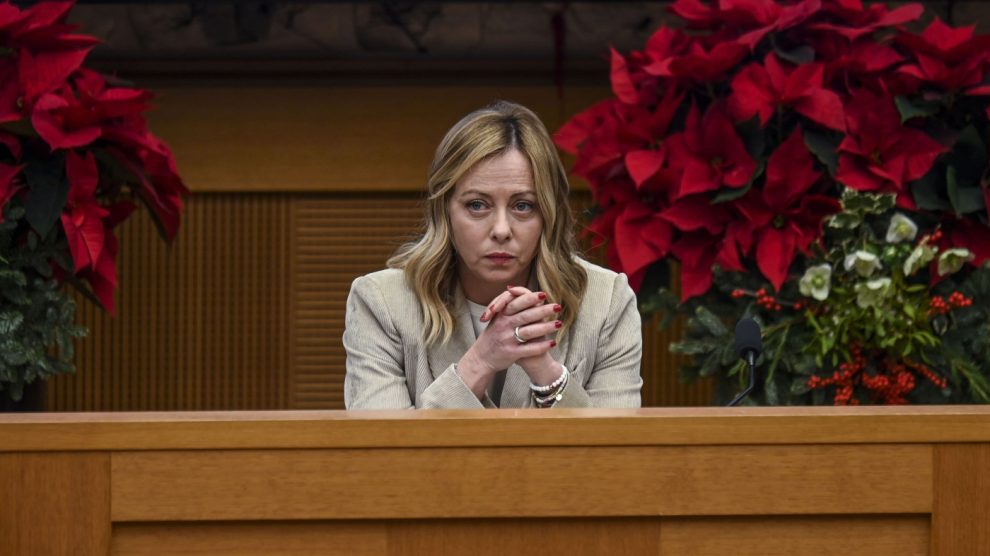Back with a bang. Her traditional end-of-year press conference had to be delayed because of her poor health. Having fully recovered, Italian Prime Minister Giorgia Meloni held it on Thursday. And the three-hour-long encounter with members of the press yielded a trove of answers about the upcoming Mattei Plan – i.e. Italy’s Africa strategy –, the relationship with China and the two ongoing conflicts, namely the Russian invasion of Ukraine and the escalation between Israel and Hamas.
In Mattei’s (and Turing’s) shoes. “What I think needs to be done in Africa is not charity, [but rather] building serious, strategic, peer-to-peer and non-predatory cooperation relationships,” explained PM Meloni, arguing the need to “defend the right [not to] emigrate before the right to be able to migrate” – by fostering the conditions via investment and a strategy. That’s the essence of the Mattei Plan, which should be approved next week as soon as Parliament reconvenes.
- The Meloni government wants this flagship strategy to “become a model for other European and Western countries so that they [too] can join in.” And the work on Africa, including the Mattei Plan, “will be a focus of the G-7” under the Italian presidency that began on Monday, she said.
- The impact of artificial intelligence on the labour market will also be central to the G-7’s agenda, she reiterated, noting that the matter will be addressed through ad-hoc work within the forum.
The relation with China. The Italian PM described the decision not to renew the Memorandum of Understanding on the Belt and Road Initiative as a choice of “consistency” with her thoughts, taken in light of “the results that have come in” – like the increasingly unfavourable trade imbalance and lack of reciprocity, also highlighted by the European Commission, as well as the fact that the promised Chinese investments never materialised.
- Italy and China have now reverted to the Global Strategic Partnership, launched in 2004 by then-PMs Silvio Berlusconi and Wen Jiabao. “I intend to relaunch trade relations with China, and I intend to honour my commitment to go to Beijing, [responding] to President Xi [Jinping’s] invitation, as soon as possible,” she explained.
- “We need to relaunch relations with China and also encourage Chinese investments that may be interesting,” she added, without specifying the sectors concerned.
Ongoing conflicts. PM Meloni also reiterated her commitment to supporting Ukraine militarily, describing efforts to “maintain the balance between the forces on the ground” as “the only chance” to reach a credible negotiation. Without sending arms to Kyiv, as suggested by some (a lateral swipe to the Five Star Movement’s Giuseppe Conte), the war would have been “closer to home,” she stressed.
- Turning her attention to the Middle East, the Italian PM made “a new appeal to Israel to preserve the safety of the civilian population,” underscored that dialogue with the Arab countries remains “fundamental” at this time, and recalled that she was the only leader of the G-7 countries to have attended the Cairo conference.
- “We have worked from the beginning to avoid an escalation of this conflict that – I believe – could have unimaginable consequences. We have maintained a very balanced position, condemning Hamas’s terrorist attacks, supporting Israel’s right to exist to defend itself and taking care of the civilian population with a series of humanitarian initiatives that we share with Arab countries.”





